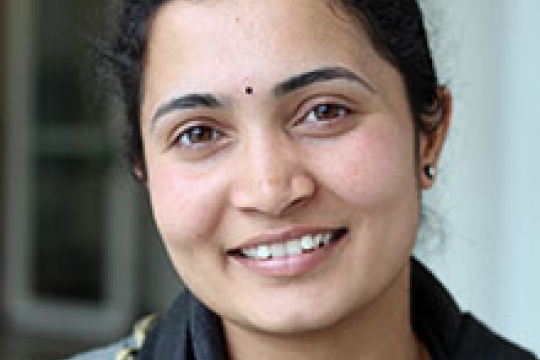Missing or imperfect markets in several economic sectors explain the reality of the economic problems in developing countries. A market failure in any sector can lead to inefficient allocation of resources and these failures are often resulted in an unequal distribution of income or wealth.
Yashodha Yashodha a doctoral candidate in economics at the School of Business, Economics and Law, University of Gothenburg has studied the informal groundwater market in rural areas of India and how exploitation of poor water buyers can be reduced.
What is the most important result in your thesis?
We find that groundwater sellers have a high bargaining power to decide on the type of contract in the informal groundwater market. Whereas, buyers have more influence on the choice of contract type if they share interpersonal relationships with sellers, such as kinship ties, if they are more educated than the seller and have a long contractual history with the seller. Further, we observed that the contract choice in the joint decision depends on the relative risk preferences of sellers and buyers. When the buyer is more risk-averse than the seller, he is more likely to choose an output-shared contract. Looking into the trust behavior of the agents in the groundwater contracts, we find that the kin are trusted more compared to the non-kin. The high altruistic concern towards the kin group explained a large fraction of the variation in the observed trust difference towards kin and non-kin. Senders believe that kin receivers are more trustworthy than non-kin whereas, the actual difference in the trustworthiness of kin and non-kin receivers is small. The kin receivers’ trustworthiness depends on how close they are within their kin network.
What impact does your work have on research and society?
Our findings have two important implications. As informal groundwater contracts are unregulated, the poor and marginal farmers who depend on these contracts for food production are exploited, which is a great concern in the developing countries. This raises the question of equity implications of these contracts. If the present trends of decreasing rates of aquifer levels in India continue which further increase the water scarcity, it might further widen the bargaining power gap between buyers and sellers. The study provides evidence about the relative bargaining position of agents in these markets to consider into groundwater policy interventions that are needed to bring the present form of groundwater markets towards the competitive market.
What are your policy recommendations based on your findings?
Our study provides a clear evidence of sellers´ market power in the informal groundwater contracts. We recommend that the groundwater policies consider the difference in market power between buyers and sellers in the informal groundwater contracts; thereby they can bring the present informal groundwater market towards competitive markets. Most of water buyers are marginal farmers and are more risk-averse than sellers; thus, buyers prefer an output-shared contract in which they can share the risk with sellers, although such a contract gives them lower profits compared to a fixed contract. Although an output-shared contract acts as a risk-sharing mechanism for buyers, it affects the distribution of income resulting from groundwater sharing. The efforts that cushion risk-averse buyers in agrarian markets might allow them to make better choices and improving the equity effects of local informal trading.
What do you hope to achieve with your thesis? I hope that findings of my dissertation will influence the groundwater policy maker that many policies related to groundwater should be reconsidered by incorporating the nature of the locally existing market for sharing groundwater. Particularly, I hope the policymakers consider the sellers’ market power at the local level given the scarcity of water and put effort to bring them towards competitive market such that the exploitation of poor buyers will be reduced.
What research will you focus on in the future?
I am currently involved in two projects. First one deals with producers’ preferences and welfare effects of alternative Rice seed contracts in India. In the second project, our focus is to understand the rice producers’ preferences for crop insurance and development of block-level insurance schemes for rice in Odisha, India.
Yashodha recently started working as a Behavioral Economist at International Rice Research Institute (IRRI), India Office.
Yashodha Yashodha defends her theses: Contract Choice and Trust in Informal Groundwater Markets , on October 20th at the School of Business, Economics and Law. Yashodha has been part of the Sida funded doctoral program in Environmental Economics at The Department of Economics.
